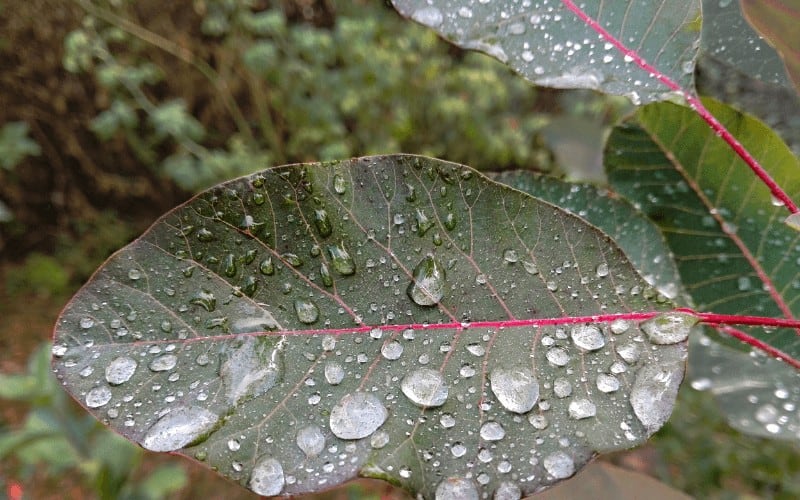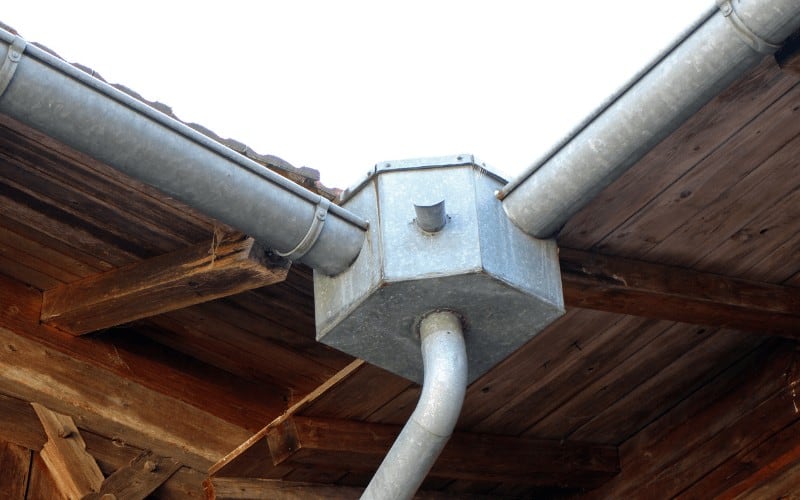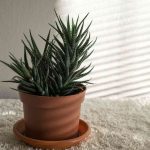The secret to growing healthy plants might be a few ingredients you have but never pay much attention to, and in this case, rainwater. But how long can you store rainwater for plants? As long as rainwater is protected from contaminants, you can store it from anywhere between 2 weeks to indefinitely.
But there are other things you need to know when it comes to storing rainwater for plants, which we'll talk about below. Gardeners use rainwater because it is soft.
The absence of harmful chemicals in rainwater makes it a go-to option if you are looking forward to showering your plants, edibles, or flowers with enough nutrients.
In this guide, you'll learn everything there is to know about how long you can store rainwater for plants as well as how to keep it clean for long-lasting and rewarding results.
Table of Contents
Can I Water My Plants With Rainwater?
Yes, you can safely water your plants with rainwater. Maybe you've gotten too used to distilled, tap water, or even bottled water, and so you have not considered rainwater.
Plants or even flowers need natural ingredients to grow well, and rainwater has more oxygen than tap water.
Rainwater releases micronutrients like; zinc, copper, and other minerals that are good for the soil.
Does Rainwater Expire?

It is important to note that water does not expire. However, your rainwater will go bad if you leave it open for contaminants, especially when the rainwater is stagnant.
The stagnant water becomes a breeding ground for organisms, even for foul-smelling bacteria.
This might not affect your plant, but it would render the plant unusable, especially for plants that you intend to consume.
However, if you store the rainwater in a cold place away from harmful chemicals and harsh fumes and, of course, off the concrete floor, then you do not need to worry.
Since rainwater doesn't expire, how long can you store rainwater for plants?
How Long Can You Store Rainwater for Plants
You can store your rainwater from 2 weeks to an unlimited period; so far, you keep it away from contaminants.
However, storing the water for more extended periods would leave you wondering if the water would still be helpful.
And sometimes, due to fear of using the water, it might lead to wastage. So for a safer outcome, recycle your water from one season into another.
Many people can leave water in a rain barrel for months at a time with no issues.
How Often Should You Recycle Your Rainwater?
Since rainwater does not expire, it's not enough reason to store your rainwater for too long. It is essential to recycle the water very often. It is not ideal for water to sit inside the barrel for more than three weeks.
Staying more than that will cause the water to become stagnant.
It is ideal always to use the water in your rain barrel. And if you intend to keep your rainwater a bit longer. You'll need some tips for keeping it.
How to Keep Rainwater Clean And Safe For Plants

1. Use a filter
Filtering the rainwater is essential. If you are getting the water from rooftops or using a gutter to collect the water, install a filter right at the rooftop; this will prevent unwanted particles from entering the barrels.
Furthermore, you can place a filter before the water enters the barrel; you make sure decays from bird poop or debris don't enter the water. Clean your filter often to avoid clogs and blockages.
2. Empty and wash barrels once a week
Storing the water for too long can attract unwanted guests. Empty your barrels once every week, so insects do not make your water a breeding ground.
To wash the barrels, you can use chlorine bleach. Use soda mix to avoid a foul smell. Sprinkle either of the two in the barrel.
Wash well and rinse until there is no chemical left in it; this is to avoid strong chemicals from settling in your next fetch; it can destroy your plants if care is not taken.
3. Add chlorine and Iodine tablet
Growing edibles would need a little bit of effort and treatment, so you ensure water is safe for your plants.
Look out for waterborne diseases like giardia or crypto (not the crypto you think, though). So treat your water with chlorine or Iodine tablets, so you don't end consuming plants.
4. Paint your barrel
Remember most organisms cannot survive in cold water, so use paints on your barrels to avoid penetration of light. Preferably brown or black. Algae needs light to grow and so would not see the need to grow in any dark barrel.
However, this might seem counterproductive; why? The barrel would absorb light and keep the barrel warm for some time, attracting insects. You can use oil to prevent them from spawning within your rainwater.
A tablespoon of oil will do the magic, and the oil acts as a barricade, so insects don't find their way down the tank.
Note: Most areas are more exposed to diseases like Legionella pneumophila.
How to Water Your Plant with Rainwater
Check the water pH before use, and the ideal pH ranges between 6.5 and 7.0 degrees Celsius.
Avoid watering directly on the plant; water only the base, this is to avoid insect infestation on the leaves.
You can easily change the soil, but having to plant again because of damaged plants is the stress you cannot afford.
Moreover, the roots are better at fighting diseases than the leaves.
Conclusion
Now that you know the importance of rainwater and how you can store it for a relatable period. Be sure to shower your plants, edibles, or flowers with enough nutrients from rainwater.
Hopefully, this guide provides you with all the information you need to store your rainwater for plants. Refer back to this guide, so you get a long-lasting and rewarding result.
You shouldn't encounter any issues if you adhere to the instructions provided herein.
Have an excellent time storing your rainwater!
You may also like:
- Can Sage Be Overwatered?
- Can You Overwater Pansies?
- Overwatered Vs Underwatered Aloe
- Plants That Grows From Cuttings In Water
- Will Spraying Plants With Water Prevent Frost Damage?




